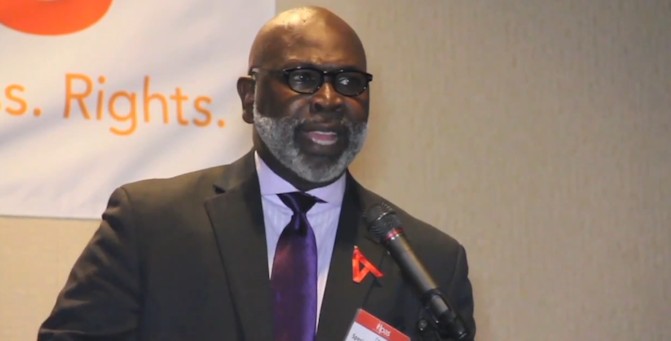The New York Times recently ran a story about Willie Parker, an abortionist who claims to be a devout Christian. The author writes about several stories Parker told in his 2017 book, “Life’s Work: From the Trenches, A Moral Argument for Choice.”
However, there is one anecdote in the book that The New York Times ignores. On page 32, Parker admits that he sent a teenage victim of incest back to her father and did not report her abuse.
The incident happened when Parker was working in a medical clinic that did not do abortions. He had not yet started his lucrative career as an abortionist. One day, a pregnant teen came to see him. He says:
[She was] a young woman, 18 or 19 years old… This woman had become pregnant through incest by her father, a very controlling, overbearing – and religious – man. She was Latina, from a family of migrant workers, raised in a community defined by patriarchal hierarchy. Because she was not a minor or dependent, I had no legal duty to report this tragic situation, and I knew enough about her cultural context to understand that involving law enforcement without her consent could make this woman’s daily circumstances even worse. In an extreme sense, this woman was doing what was expected of her, which was to live in her father’s house until she moved, ultimately, into her husband’s… I referred her to the closest clinic I could, which was about 50 miles away, but I remember thinking that if I had the skills to do her abortion, I would do it, right then and there.
Even if it were technically legal for Parker to send this girl home to experience more abuse, was it the right thing to do? The girl was still a teenager, and the abuse may well have begun when she was legally a minor. By neglecting to report the incest, Parker allowed it to continue. He sent this sexual abuse victim right back to her rapist. He protected her predator.
The excuses Parker gives for this are deeply troubling. He seems to imply that incest is a normal event in the “cultural context” of Latino households, which he claims are “patriarchal.” This is deeply offensive, as anyone with Latina friends knows that incest is not “expected” of women in the community. This type of abuse can happen in any community, and it is always wrong. Implying that incest is acceptable and common among Latinos is deeply offensive. The fact that the victim was Latina was not a valid reason to allow her abuse to continue. No woman — of any race, ethnicity, or age — is better off being sexually abused.
Later in the book, Parker does say he reported incest committed on a 12-year old girl. In this case, Parker followed the law. He also says, however, that “calling CPS that day was one of the hardest things I have ever had to do.” He portrays reporting the incest as a hard decision, complaining about the state of foster care in America.
Why was calling CPS so difficult? Wouldn’t it be obvious that a child would be better off away from a pedophile? There are countless compassionate, loving foster parents. To claim that it is better for a child to be repeatedly sexually abused than to have a chance to live in a loving home is seriously twisted thinking.
Incidentally, The New York Times mentions this case of incest (of the 12-year-old girl that was reported), but ignores the other. Readers can draw their own conclusions about why the paper did this.
The cavalier attitude towards incest in Parker’s book is troubling, as is his admission that he allowed the sexual abuse of a teenager to continue. It is further evidence that the abortion industry is not pro-woman — despite the claims abortionists make.
Source: Willie Parker Life’s Work: from the Trenches, a Moral Argument for Choice (New York: 37INK, Atria, 2017) 32, 192







